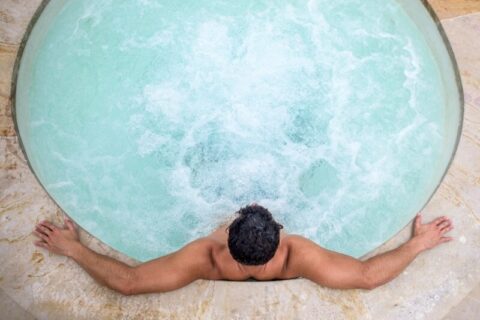Extend Your Summer by Getting a Heat Pump for Your Pool
It’s always a bittersweet moment when you close down the pool for the summer. While fall means a lot of good things, like the beginning of the holiday season, it also means the loss of the ability to go take a spontaneous swim. Or does it? If you install a pool heat pump, you can extend the number of days you get to spend enjoying your pool.
What is a heat pump? Pool heat pumps are just one of the methods for heating your pool. You can also install a gas heater or a solar heater, but both of those options have some drawbacks. If you’re wondering how to heat your pool economically and without regard for how much solar energy is directed at your house, a heat pump is your best bet.
How do pool heat pumps work? Simply put, they use electricity to pull in warm air and transfer it to the water. Let’s break down the process, step by step.
- The heat pump, which contains freon, pulls water in from the pool.
- The freon is then compressed until it reaches 200 degrees Fahrenheit.
- Passing from the high-pressure zone of the heat pump into the low-pressure zone, the freon turns into a hot gas.
- At the same time, the heat pump uses a fan to pull in air, which flows over the evaporator coils, helping them to absorb heat from the freon gas.
- As the freon gas flows through the evaporator coils, it cools and transfers its heat to the water circulating through the heat pump.
- The freon then returns to a liquid state, the pump pools in more pool water, and the cycle continues, without the freon and the water ever making contact.
What are the benefits of pool heat pumps? For one thing, they make your pool more comfortable. You don’t have to worry about getting cold, and you can swim for more of the year. Be aware, though, that a heat pump won’t work in freezing temperatures. When the temperatures drop below 50 degrees, you’ll need to bring the heat pump inside so that it won’t be damaged by winter storms. For much of the country, though, the time without freezing temp makes for a pretty long swimming season!
There’s another benefit to installing a pool heat pump that you may not have considered. Using a pool pump means you won’t have to worry about algae growing, even though your pool is warm for a long time. That’s because you’ll be maintaining it until the temperatures drop, and if you turn the pool pump off for a few days before covering the pool, the water will be cool enough to discourage algae growth.
Whether or not you heat your pool, when you need someone to care for it, Millennium Pools & Spas can help. With over 30 combined years of experience in the pool industry, we provide a comprehensive range of services for both residential and commercial customers in Virginia, Washington DC, and Maryland. When you hire Millennium Pools & Spas, you get a well-qualified, industry-trained staff, services that are tailored to your needs, and a commitment to 100% customer satisfaction. Contact us for more information.


